By now you have probably heard something about the devastating impact the palm oil industry is causing. Linked to deforestation, climate change, human rights abuses and animal cruelty. Orangutans have been so affected by this industry, they are now critically endangered.
These days, it’s hard to find cosmetics, or packaged food products without palm oil, or palm kernel oil as an ingredient. It’s in everything from shampoo, toothpaste, washing detergent, frozen microwave dinners, to chocolate bars, biscuits, peanut butter, nutella, lotions, makeup and the list goes on!
As much as we try to avoid purchasing products that contain it, it’s often hard to avoid it completely. Certain countries allow palm oil to be hidden, being labeled as ‘vegetable oil’ instead.
To make matters worse, there are hundreds of chemical names for palm oil derivatives. It almost feels unavoidable. But, I’m here to help, to give you the knowledge and power to make a difference.
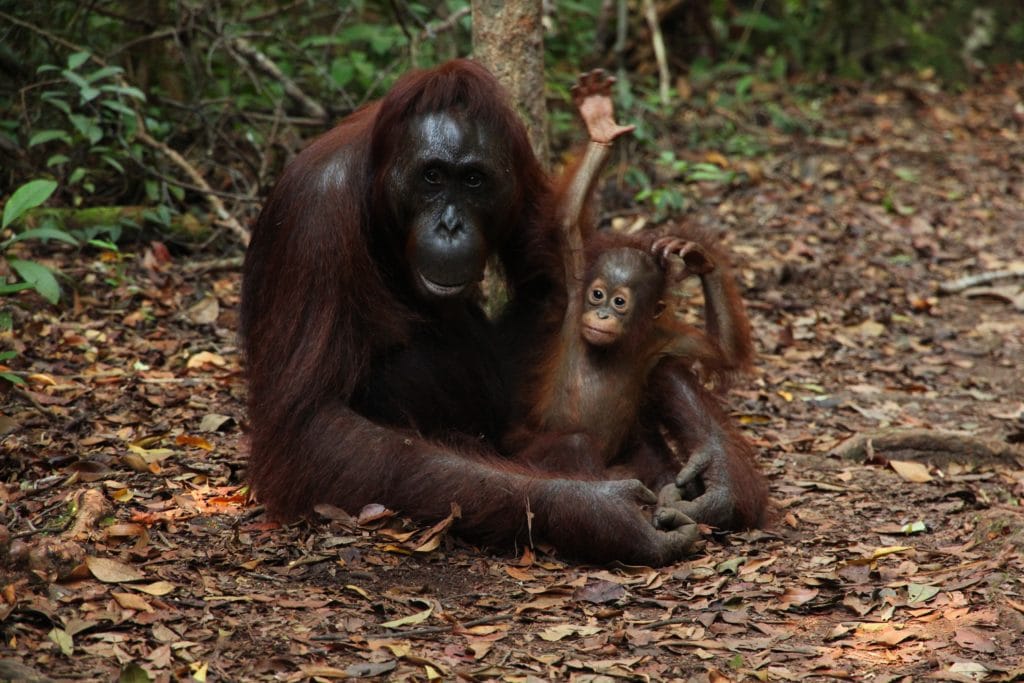
Palm oil is the most widely used vegetable oil in the world. This demand has fueled massive forest destruction throughout tropical Indonesia and Malaysia where the majority of palms grow.
The palms grow best on land that has not been used previously for agriculture. Hence, vast areas of rain-forest are continually being cleared to provide the land necessary for cultivation. This continual destruction has contributed to the annual fires and haze crisis, which is causing increased health concerns among the people of Indonesia.
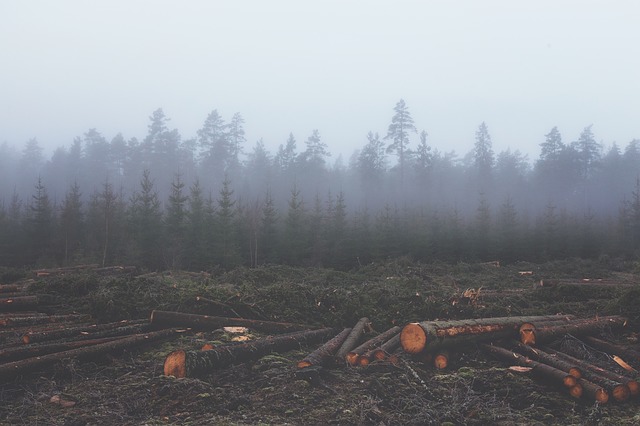
Local communities have been in conflict with each other due to traditional land rights. They have been evicted from their land by palm oil companies, leaving many communities impoverished.
There is also the concern of human rights abuses in palm oil plantations, including child labour, long hours and chemical exposure.
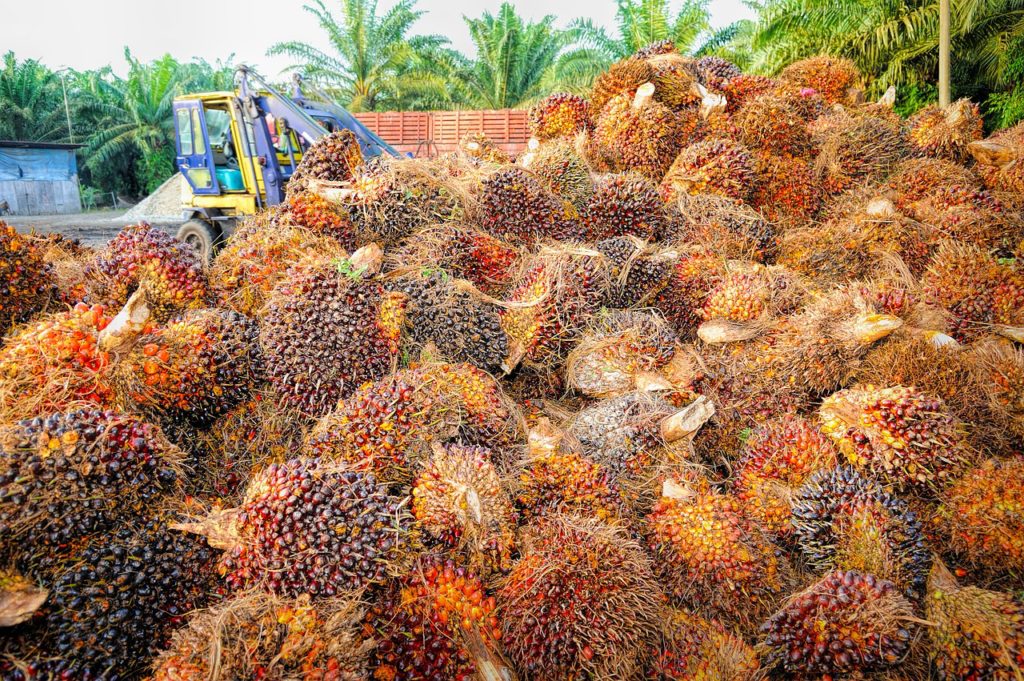
Sadly, these rain-forests are home to some of the most beautiful wildlife. All becoming injured, killed or displaced due to the loss of their habitat. Sumatran tigers, Sumatran rhinoceros, sun bears, pygmy elephants, clouded leopards and probiscus monkeys, among many many other species, have all suffered.
Orangutans, however, are the one animal that has been of greatest concern. It is estimated that every year between 1,000 to 5,000 orangutans are brutally killed due to these plantations. Palm oil is driving orangutans towards extinction, fast! They have been found buried alive, brutally attacked and killed by machetes and guns.
Displaced, starving orangutans are seen as pests. They enter villages or palm oil plantations in search of food.
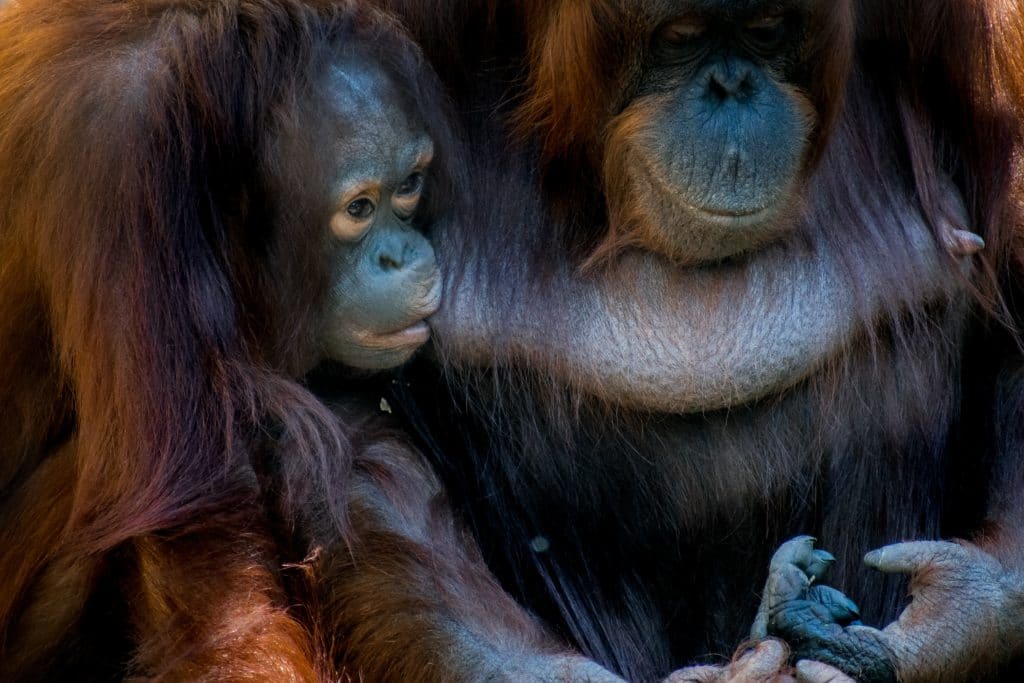
These plantations have increased the accessibility to orangutans and other rain-forest mammals, once hard to find. Poachers kill adults for meat and/or use them for medicinal purposes. While they smuggle the infants to sell, keep as pets, or to be used for entertainment.
Many unfortunately spend years of their lives in captivity, chained up, or imprisoned in tiny cages before being rescued/confiscated.
These plantations have not only caused a massive environmental issue but a major animal welfare issue too.
Those who are lucky to make it out alive have a long road to recovery. They are rescued, taken to a rehabilitation center, where they receive medical treatment, food and constant ongoing care.
Once they gain their strength and are old enough, they are relocated to protected forest areas and given a second chance to live in their natural environment. This process can be long and expensive, taking up to 7 years.
Not all orangutans are able to be released due to mental or physical conditions. Living the remainder of their lives in these protected rehabilitation centers.
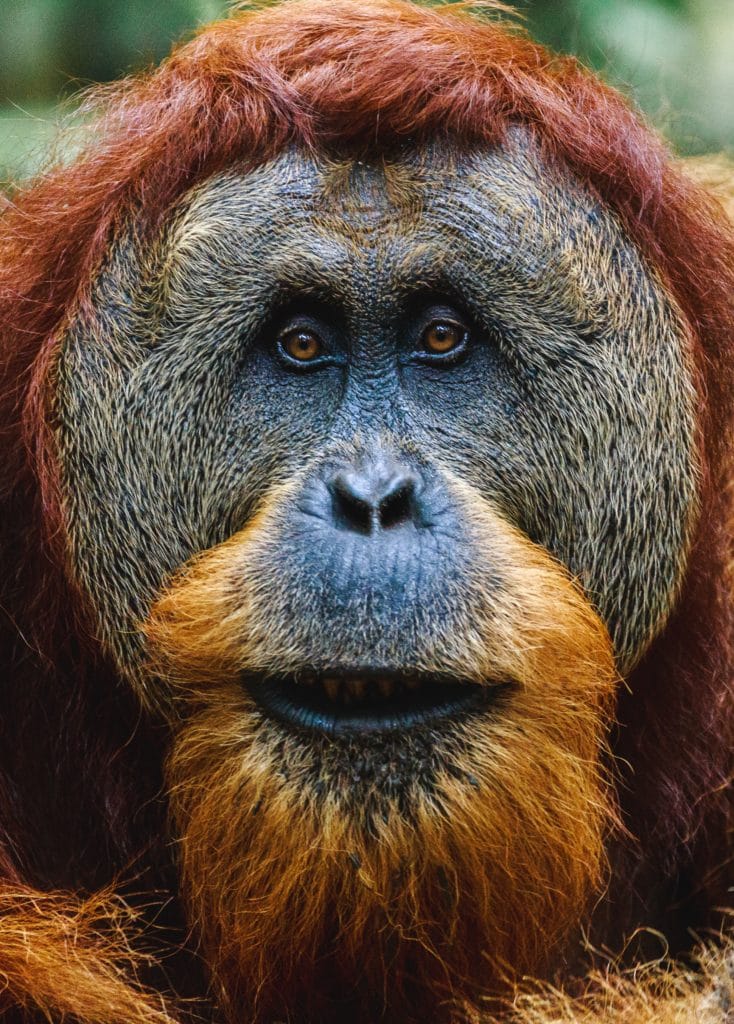
So, what can you do to avoid supporting these companies and ensuring you are not contributing to the human welfare issue, environmental issue and the abuse and decline of all these beautiful animals? You have three options.
1. Say NO to palm oil and avoid it completely.
As long as there is a demand for palm oil, these issues will continue occurring. How and where you spend your money is key. Don’t let this industry continue thriving.
Fortunately, there are phone apps available for some countries and in development for others. They help identify products containing palm oil, to make shopping easier for you. Be careful of palm oil derivatives that may be lurking in some products you frequently buy.
Unfortunately, avoiding palm oil completely has it’s own draw backs. Since palm oil is a high yielding plant, the amount of oil it produces is anywhere between four to ten times the yield of other vegetable oil crops. More land would be needed for other vegetable crops to be cultivated, to produce the same amount in volume as palm oil. Resulting in further deforestation.
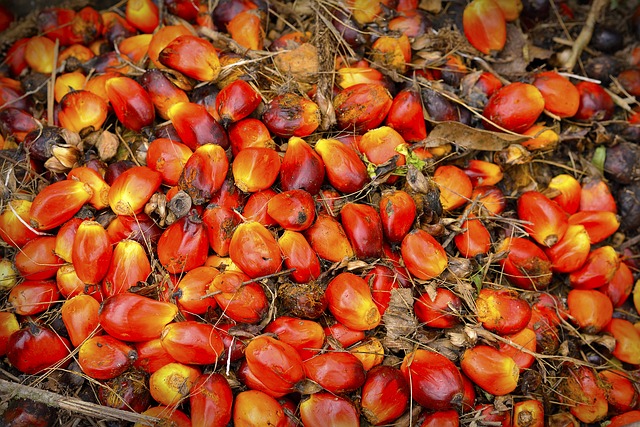
2. Purchase products containing Certified Sustainable Palm Oil.
You may have heard or seen on labels, certified sustainable palm oil. Certification schemes such as the Roundtable on Sustainable Palm Oil (RSPO) requires their growers to follow 8 principles and criteria to be certified sustainable.
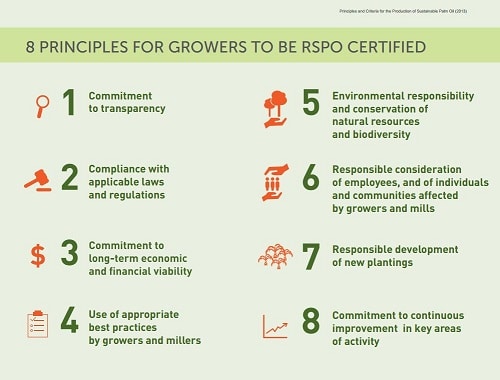
In theory it sounds good, but unfortunately in practice there are too many issues. The RSPO have still been found to permit deforestation for plantation development.
The RSPO must strengthen their standards to ensure their principles are strictly applied, to avoid any further deforestation or other negative impacts.
3. Become more Conscious and Educated
Ultimately, brands need to clean up their supply chain and cut out anyone still destroying forests. As buyers, we need to be more aware and more conscious when shopping. We should make the effort to at least reduce our consumption of palm oil. This is the only way to reduce the global demand and stop the destruction. Start reading your labels more carefully.
Together we must educate ourselves, family and friends to avoid supporting this industry.
It is our responsibility to ensure we do not cause the extinction of the Orangutan “Man of the forest” – or any other animal!
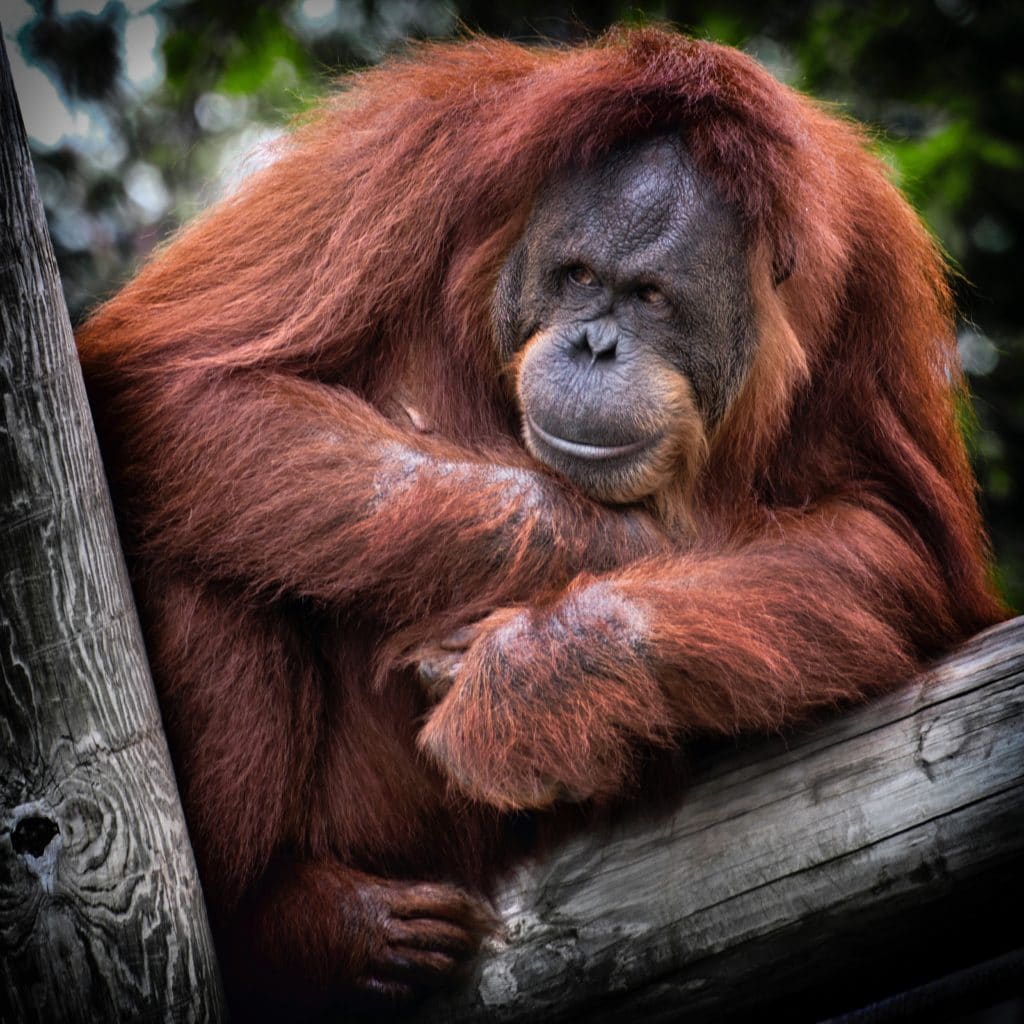
Visit these websites for more information regarding palm oil;
http://www.saynotopalmoil.com/Whats_the_issue
https://www.greenpeace.org/archive-international/Global/international/publications/forests/2013/Indonesia/RSPO-Certifying-Destruction.pdf
Palm Oil: Global brands profiting from child and forced labour
Visit these websites for more information regarding Orangutan sanctuaries;
Orangutan Care Center and Quarantine facility, Indonesia – https://orangutan.org/occq
Sepilok Orangutan Rehabilitation Centre, Malaysia – https://www.orangutan-appeal.org.uk/about-us/sepilok-orangutan-rehabilitation-centre
Matang Wildlife Centre, Malaysia – https://projectorangutan.com/tour/matang-wildlife-centre
Borneo Orangutan Rescue, Indonesia – https://www.internationalanimalrescue.org/orangutan-centre
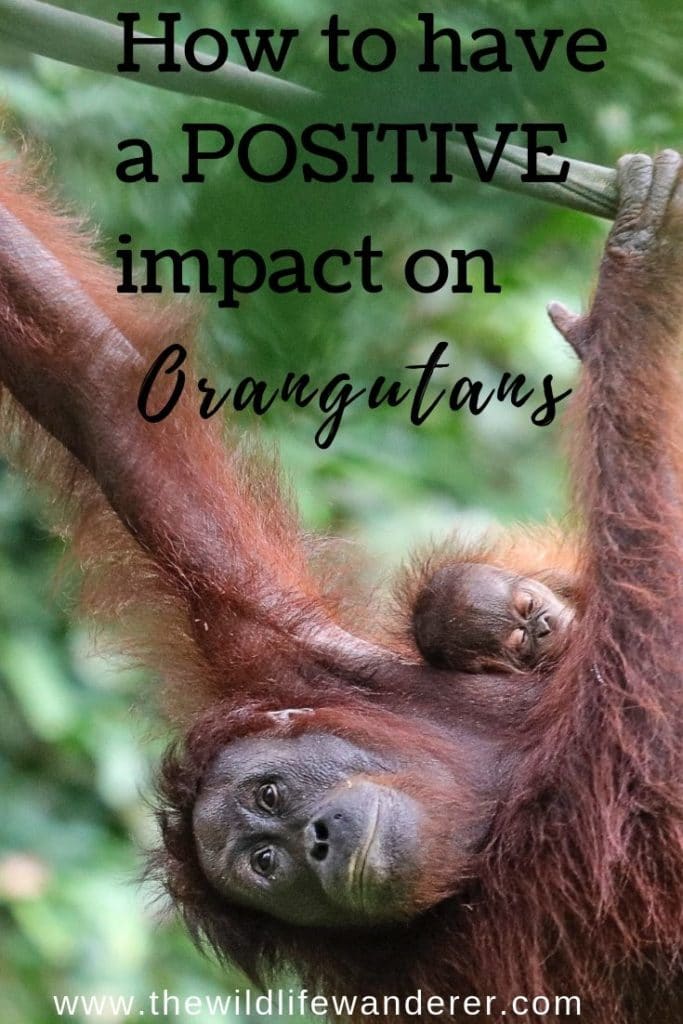
Thanks for reading!
Please leave a comment about anything you read, or if need any advice. I would love to hear from you.
You can join my community on Instagram and Facebook to keep up to date with what I’m up to around the world! xx
I always make sure I buy products that do not contain Palm oil. It’s so sad to see what happens for the sake of money.
Well done. I’m so glad to hear how conscious you are when you shop. Yes, money is causing a lot of destruction and cruelty and abuse. It’s very sad. But the more we know the more we can cause change by making noise together!